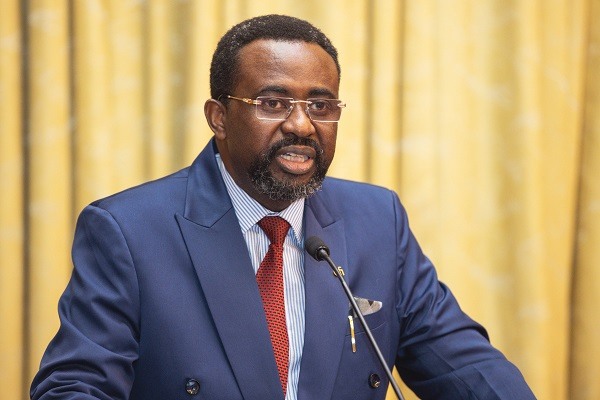Ghana is moving to bring cryptocurrency under formal regulatory oversight, as the Bank of Ghana (BoG) prepares to introduce legislation aimed at governing virtual assets, a response to what officials describe as a rapid and largely unmonitored expansion of crypto use across the country’s financial landscape.
Bank of Ghana Governor Dr. Johnson Asiama announced that a Virtual Assets Bill, developed with technical input from the International Monetary Fund (IMF), is currently being submitted to Parliament and is expected to be enacted by December.
The decision comes amid mounting evidence that cryptocurrencies—particularly stablecoins—are being used in remittance channels and informal foreign exchange markets, often bypassing the traditional banking system.
“Crypto is like the air we breathe. It’s around us, it’s used around us,” Dr. Asiama said during remarks at the IMF/World Bank Spring Meetings in Washington, D.C. “If you don’t engage in it, you don’t know it’s going on.”
According to the governor, the BoG began noticing signs of growing crypto activity earlier this year when remittance inflows through formal banking channels fell unexpectedly, coinciding with a stronger local currency. With the cedi appreciating, many in the diaspora began turning to digital alternatives to send funds back home, avoiding unfavorable exchange rates offered by banks.
“What we observed was a diversion in the channels of transmission. It was no longer going through the banks,” Dr. Asiama said. Investigations revealed that some informal currency dealers were facilitating cross-border transfers using stablecoins and other crypto instruments.
The emergence of such activity has raised concerns within the central bank about oversight gaps in Ghana’s financial system. “We could not leave it just as that. We have to step up and be able to regulate and monitor these,” Dr. Asiama said.
The proposed law would establish a legal framework for digital asset operations in Ghana, encompassing exchanges, wallet providers, and other virtual asset service providers. BoG officials say they are also working to build institutional capacity to enforce the regulations, including the establishment of a dedicated department focused on crypto oversight.
“Passing a law is just one step in this process,” the governor said. “The ability to monitor those flows will be key. We are developing the expertise and manpower needed to do that.”
Ghana joins a growing list of emerging markets attempting to balance innovation with financial stability as cryptocurrencies gain traction among unbanked populations and informal economies. Dr. Asiama stressed the importance of proactive engagement, noting that digital assets are “too significant to be ignored.”
“We are trying very hard to be able to regulate that as well,” he added.
If passed, the Virtual Assets Bill will position Ghana as one of the first countries in West Africa to adopt a comprehensive legal framework for digital currencies—an increasingly urgent move as global financial institutions ramp up scrutiny on unregulated crypto activity.














